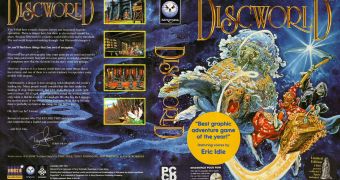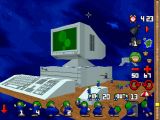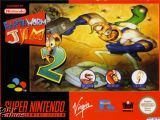The gaming industry is getting older and so are the people who are doing reviews. The problem is that a rift is forming and the new wave of people might not have the background any more for this kind of job.
It's not a problem just yet, but it looks like young professional reviewers are starting to replace the older generation. That could just be a good thing and it's impossible to tell whether this will be reflected in the long run. We need to take a wider look at the gaming industry and see things as a whole.
One of the publishers' biggest problems is that they fail to recognize which is their target audience. Ten or fifteen years ago their main public was supposed to be kids and teenagers, and that is why the idea that violent games could influence a child's development took hold. Never mind that it was demonstrated time and time again that it's not true, the public opinion was all that mattered.
Those kids and teenagers are all grown up now and many of them are still playing games, but the publishers don't see this just yet. For the most part, many of the games released today seem to address the same age category, which means that older players who actually have jobs and they can pay for their own games, get ignored. And now comes the fun part. The same thing is happening with professional game reviewers.
Reviewing a game is not as easy as you think
Many gamers believe that it's easy to write something about what they are playing and they also think it would be a dream job. Play all day and get to write about it. The truth is a little bit different. There are deadlines, pressure from publishers, and of course, you are going to play a lot of horrible stuff. Most of those titles you wouldn't buy for yourself. And you need the most important thing of all, experience.
Experience comes with practice and game reviewers have a ton of it. The writers who are over 30 years old have been playing games for about two decades, let's say 1995. Which means that they were there when the first Command & Conquer was released, they played the first Descent title, and they've seen Discworld. That's a lot of experience to draw your inspiration from and it's impossible to replace.
I was reading some articles the other day and two things really stuck out. A writer was inviting his dad to play the original Dragon Age, and another was reviewing a new game and he was saying that he didn't play the original title (which wasn't released a long time ago).
In the first instance, you have two generations of gamers in the same household, while in the second one, you just have a young guy reviewing something that comes with an important legacy, a legacy that he knows nothing about. They are both fine writers and that is not disputed, but it shows that the gaming landscape is changing in ways we don't imagine just yet.
Prepare for well-written and uninformed reviews
Two different aspects of the same problem meet. On the one hand, you have a lot of older gamers who are largely ignored by the publishers, and on the other hand, you have young reviewers who can't connect with their audience because they don't have the necessary experience.
If you write a review for a reboot of a franchise that you loved as a kid, that's going to influence what you say. If you have no idea what the legacy of a game is and you only read the Wikipedia entry, it will provide the reading public a lacklustre review that doesn't take everything into consideration.
There is no solution to this conundrum and we can only watch it unfold. Probably, the only temporary fix for the next decade or so would be for publishers to acknowledge the fact that they should make and sell their games to an older audience and maybe things will start to correct themselves from there.

 14 DAY TRIAL //
14 DAY TRIAL // 









